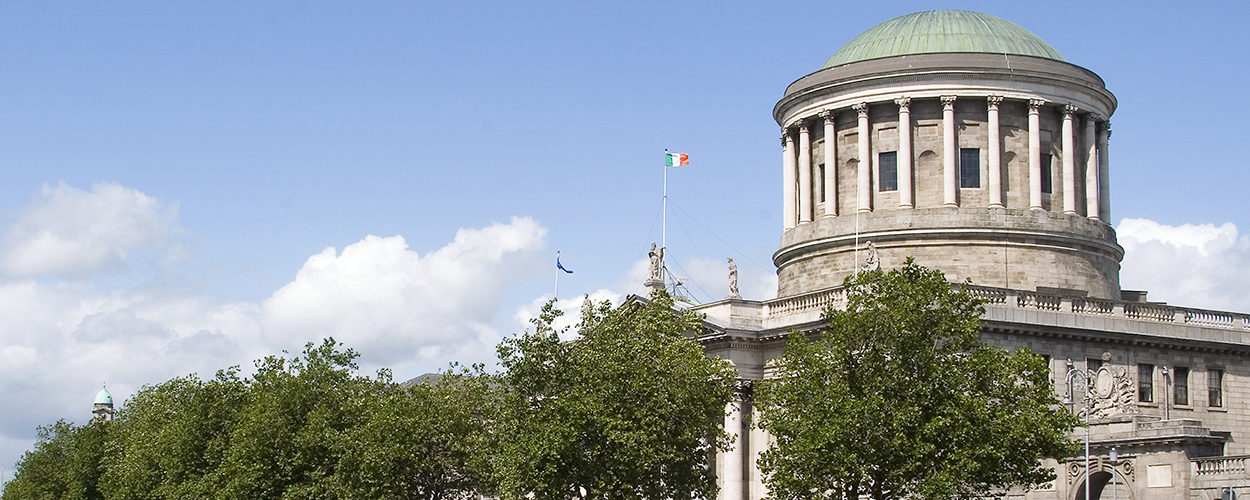This website uses cookies so that we can provide you with the best user experience possible. Cookie information is stored in your browser and performs functions such as recognising you when you return to our website and helping our team to understand which sections of the website you find most interesting and useful.
Business News Labels & Publishers Legal
Irish appeals court considers the ongoing dispute between the country’s label and performer collecting societies
By Chris Cooke | Published on Tuesday 25 January 2022

The Irish appeals court last week rejected an appeal pursued by PPI – the collecting society that represents labels in Ireland – as part of its ongoing dispute with RAAP – the collecting society that represents performers in Ireland.
At the heart of that dispute are complexities related to how rights and royalties flow around the world when recorded music is broadcast or played in public.
In those scenarios, both labels and performers are usually due payment. That money is administered by the collecting societies set up by the record industry in each country, which collect the cash and pass it on to their members.
But what if the music broadcast or played is performed and released by artists and labels in other countries? When that happens, the local societies will usually pass any money they collect onto the societies in whichever country those artists and labels are based.
So rights and royalties constantly flow around the world via a global network of collecting societies. Good times.
However, each country’s copyright laws are slightly different, and in a small number of countries – including the US – no royalties are actually due when recordings are broadcast or played in public. So, should countries where royalties are due still pass that money onto labels and performers in countries where no royalties are collected?
Quite how that works varies from country to country. Sometimes royalties are still passed over to countries like the US, even though no monies are flowing back from the broadcast and public performance of music in those markets.
But sometimes payments are not made to countries like the US – possibly for both labels and performers – or sometimes just for performers. The latter system – known as the “reciprocity” approach – is how things have traditionally worked in Ireland.
So, normally PPI collects monies from users of music and then passes the performers’ share of that money onto RAAP, which pays its members. However, PPI hasn’t traditionally handed over any money where its American performers on a record, because of the “reciprocity” approach.
As part of legal dispute between the two societies, RAAP argued that the “reciprocity” approach wasn’t actually allowed under European copyright law, and therefore PPI should be paying it royalties due to American artists.
As the dispute progressed that question about European copyright law was passed up to the EU courts, which – in a 2020 ruling – ultimately sided with RAAP, basically saying the “reciprocity” approach was not allowed under the relevant EU directive.
Actually, the relevant EU directive doesn’t explicitly say anything about the “reciprocity” approach, so previously it was assumed that meant that EU countries could employ said approach if they wanted to. The ruling in this case ended that assumption. Though critics of the ruling are campaigning for EU law to be amended so to clarify that previous assumption, ie that the “reciprocity” approach is just fine. But that hasn’t happened yet.
Meanwhile, back in Ireland, the Irish courts have had to figure out what the ruling in the EU courts means for the dispute between PPI and RAAP, including what it means regarding PPI employing the “reciprocity” approach, and to what extent the real problem is the Irish government not properly implementing the relevant EU directive into Irish law. There is also the tricky issue of whether PPI or RAAP should cover the other’s legal costs.
The Irish high court made a ruling on all that in February last year, which basically went in RAAP’s favour. PPI then appealed that ruling with a load of complex arguments about European law, the Irish Copyright Act, the distinction between it and the Irish government in terms of the the EU court’s ruling, and its 2002 contract with RAAP, which is actually what this whole legal dispute is technically about.
The appeals court has basically rejected PPI’s arguments, upholding the high court’s decision. It remains to be seen if the society now chooses to take the matter further.





